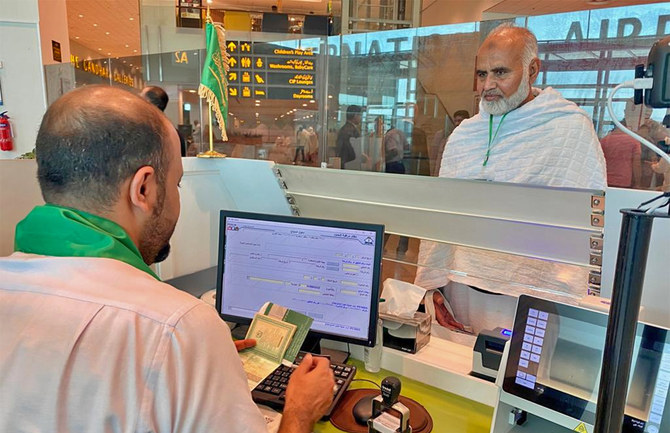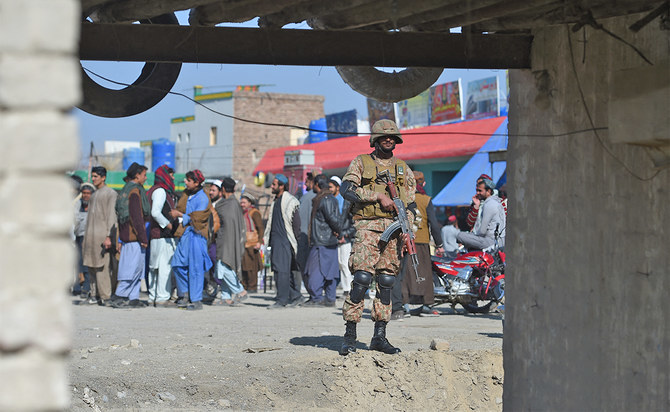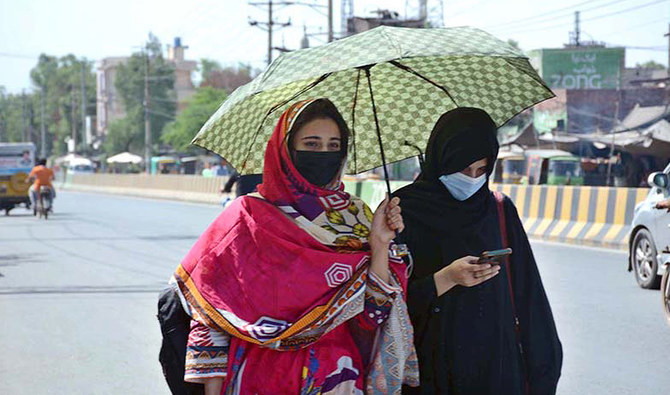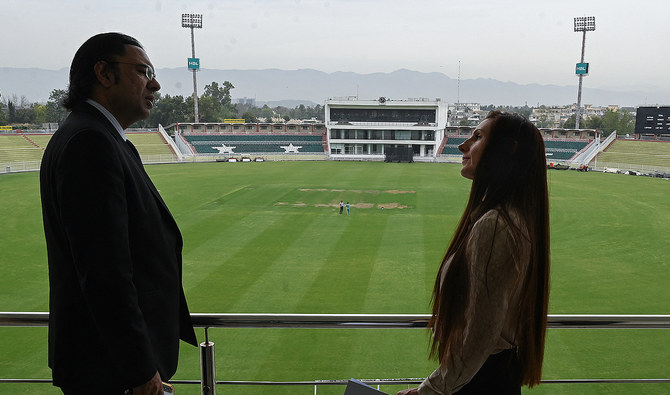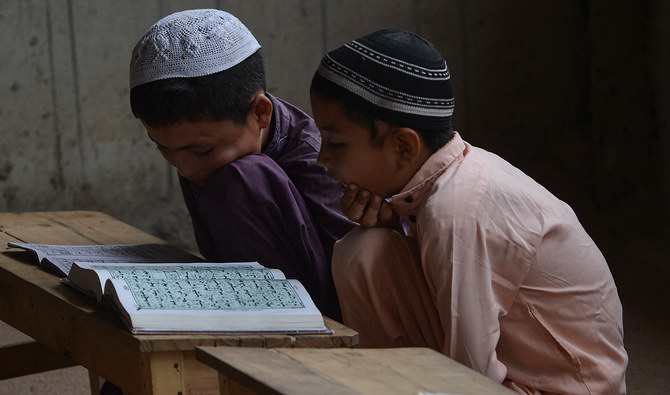ISLAMABAD: Around 7,000 Pakistani Hajj pilgrims have so far reached Saudi Arabia on 20 flights from the Islamabad airport under the Route to Makkah project, a senior Saudi official said on Friday.
The initiative allows pilgrims to fulfil all immigration requirements at the airport of origin. This saves them several hours upon reaching the kingdom since they can just enter the country, having already gone through immigration at home.
Pakistan has already started operating flights to transport more than 14,000 Hajj pilgrims to Saudi Arabia under the Route to Makkah project from Islamabad, where the country launched a pilot project for the new immigration mechanism in 2019.
The initiative was again implemented this year in five countries, including Pakistan, and a Saudi team is in Islamabad to facilitate pilgrims before their departure to the kingdom.
“Around 7,000 Pakistani pilgrims on 20 flights have already traveled to Saudi Arabia using Route to Makkah facility at Islamabad airport and nearly 15,000 total pilgrims would benefit from this facility,” Mansour Shahad S. Alotaibi, head of the Route to Makkah team in Islamabad, told Arab News.
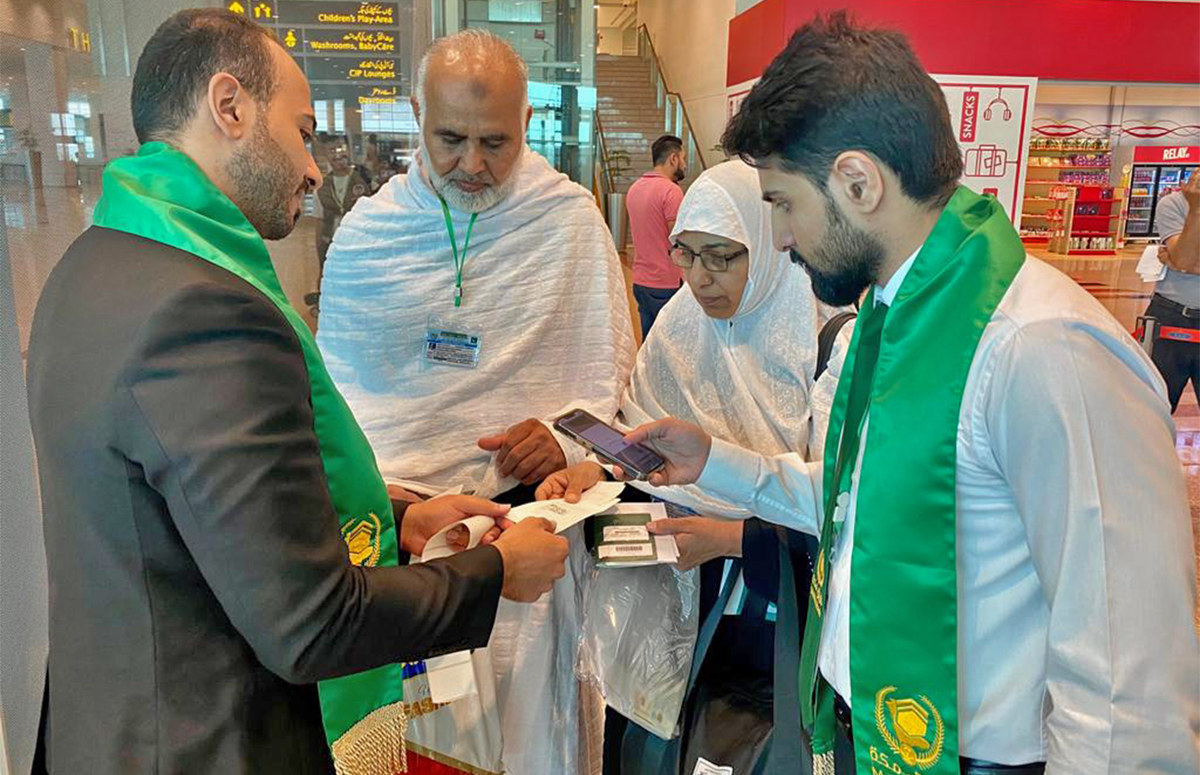
Saudi staff of the Route to Makkah project help out Pakistani pilgrims at Islamabad airport in Islamabad, Pakistan, on June 17, 2022. (AN Photo)
He said the main purpose of the project is to provide maximum relief to Hajj pilgrims.
“When a pilgrim enters the Route to Makkah hall, it is just like entering Saudi Arabia as we are providing all services related to immigration at Islamabad airport like boarding, checking of luggage, visa verification and biometric,” Alotaibi said, adding pilgrims would directly travel to their residence from the airport without any hurdle and their luggage would also be delivered to them at the places where they would be staying in the kingdom.
Saudi Ambassador to Pakistan Nawaf bin Said Al-Malki said the project was part of the Vision 2030 and aimed to make Hajj easy for Pakistani pilgrims. It would be extended to Lahore and Karachi next year, he added.
“This is the second time that the Route to Makkah initiative was implemented in Islamabad and next year this will also be expanded to Lahore and Karachi,” Al-Malki told Arab News.
Spearheaded by Crown Prince Mohammed bin Salman, the Vision 2030 aims to diversify the economy, away from a dependency on oil and society with varied and rich experience of a quality lifestyle, including world class tourism.
Al-Malki said the Route to Makkah initiative was extended to the Pakistani people by Saudi Arabia’s King Salman bin Abdulaziz and Crown Prince Mohammed. “The project will make Hajj very easy for the Pakistani people by saving their time and energy,” he added.
The Saudi envoy thanked the Pakistani government for extending its cooperation to make the program easy for the staff coming from the kingdom. “Pakistan and Saudi Arabia are two brotherly countries and have historic relations. The kingdom has supported Pakistan since its formation till now.”
After a hiatus of two years due to the COVID-19 pandemic, Saudi Arabia has this year allowed up to one million people to join the annual Hajj pilgrimage, inviting Muslims from other countries. Pilgrims must be under the age of 65 and fully vaccinated against coronavirus.
Pakistan has been allocated a quota of 81,132 pilgrims for this year’s Hajj.
Muhammad Akhtar, a pilgrim from Pakistan’s Faisalabad, said he was satisfied with the immigration facilities provided by the Saudi staff at the Islamabad airport.
“The arrangements at the airport are very good and we don’t have to face any difficulty during the whole process,” he told Arab News. “I was applying for Hajj for the last four years and got approval this year. I am grateful to Almighty Allah for granting me this opportunity.”
Another pilgrim, Muhammad Waseem, said the Route to Makkah project would significantly reduce waiting time at the Jeddah airport.
“I went to Saudi Arabia earlier for Umrah and had to wait for around four hours for immigration, but now they have made it very easy,” Waseem said.
He said the delivery of luggage directly to the hotel in Makkah would save him a lot of hassle at the airport.
Lubna Asad, who was also traveling to Saudi Arabia from Faisalabad, said the staff at the Route to Makkah counters were very cooperative.
“I am very happy and thankful to Saudi Arabia for allowing us to perform Hajj after the break of two years,” she said.



